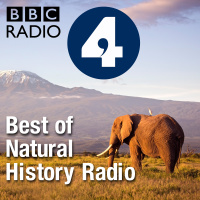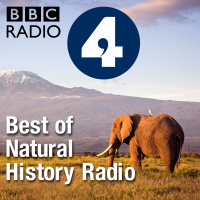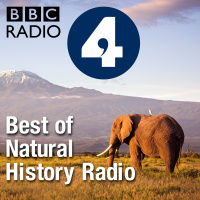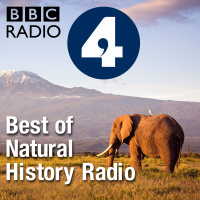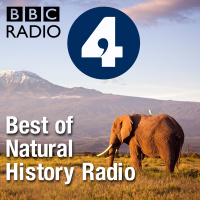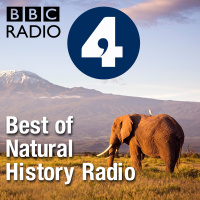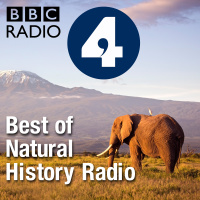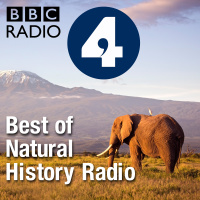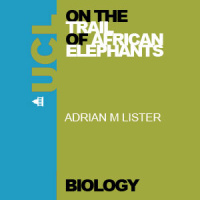Sinopsis
The BBC Natural History Unit produces a wide range of programmes that aim to immerse a listener in the wonder, surprise and importance that nature has to offer.
Episodios
-
Saving Species Programme 27
02/11/2010 Duración: 28minBrett Westwood presents a programme full of geese. Joanna Pinnock witnesses the arrival in Norfolk of pink-footed geese, while Michael Scott visits the Scottish island of Islay. Geese migration is a spectacle, but is it also a problem? We have perspectives from farmers and conservation organisations. Finally, Kelvin Boot sums up developments from the Nagoya biodiversity conference.
-
Saving Species Programme 26
26/10/2010 Duración: 28minBrett Westwood presents. In the light of the British Government's spending review, is it business as usual for running nature reserves? Also in the programme, we have a live report from Nagoya in Japan where governments and conservation organisations from around the world have been meeting to discuss new biodiversity targets. Chris Sperring has his eye on Fallow Deer and brings you the spectacle of their rut on Exmoor together with their impacts of woodland. And Kelvin Boot has been with iSpot users in the New Forest looking for fungi.
-
Saving Species Programme 25
19/10/2010 Duración: 28minBrett Westwood presents. Saving Species is in London looking for south-bound migrating birds. Ornithologist Ian Wallace has watched the skies wherever he’s lived since he was a young man, including London’s Primrose Hill. So how would his earlier findings compare with todays visible migration? And we'll have a special piece from a sacred forest in Ethiopia, a unique wooded island refuge in a desert of over tilled land - a forest protected by a church and its followers. We hear from Claire Ozanne from Roehampton University as she and colleagues conduct the first ever wildlife survey of this refuge.
-
Saving Species Programme 24
12/10/2010 Duración: 28minBrett Westwood presents. In earlier episodes of Saving Species we followed the life and times of British seabirds on the Isle of May and the Cliffs near Tain, both in Scotland. Over recent weeks lots of data has been crunched and we have ornithologist Bob Swann telling us how Fulmars, Kittiwakes, Puffins and Shags and other seabirds have done in various places around the UK. Biologists from Oxford University have been studying the decline in British birds and have come up with work that indicates that bird decline in the UK is an indicator of wider mass extinctions over the world. Also, bees. We report new research looking at what the Honey Bee waggle dance tells us about nectar sources in gardens and the countryside. And to a great source of autumn nectar, Kelvin Boot hunts down the Ivy Bee.
-
Saving Species Programme 23
05/10/2010 Duración: 28minBrett Westwood presents. Chris Sperring reports from a woodland in Wales amongst erupting fruiting bodies and discovers the importance of conserving fungi for the health of woodlands. Ted Oakes is back in the Minnesota woodlands trying to locate black bears and see how they are responding to conservation. We're also back in Africa with a report from Tessa McGregor about the successful conservation of the Grevy's Zebra in the Samburu National Park in Kenya. With news from Kelvin Boot.
-
Saving Species Programme 22
28/09/2010 Duración: 28minPresented by Kelvin Boot. Saving Species visits the Mississippi Delta and asks naturalists and biologists "just how tough are the oceans' defences to huge pollution events like the recent oil spill"? Howard Stableford will be in the area gathering information about the resilience of a huge river Delta and its relationship with the sea. How much flex is in the system? We'll find out.
-
Saving Species Programme 21
21/09/2010 Duración: 28minBrett Westwood presents. Saba Douglas-Hamilton reports from Samburu national park in Kenya. In her first report we hear about the affects of severe flooding after a period of sustained drought on the savannah and get an insight into the elephants within the national park. And we hear from Mark Brazil in the Aleution Islands (a string of islands streaming off the western tip of Alaska) and his close encounters with Stellers Sea Lions. And in the UK, culm grassland making a return - the preferred habitat of the Marsh Fritillary. With news from Kelvin Boot.
-
Saving Species Programme 20
14/09/2010 Duración: 28minBrett Westwood presents. We focus on the seabird species the Little Auk which inhabit the northern archipelago of Svalbard at the height of their breeding season. Joanna Pinnock visits a compost heap in Cambridgeshire. And we follow on this theme with a special studio guest who needs a warm living compost heap to successfully raise her young - the Grass Snake. Also in the programme we feature the Large Blue Butterfly.
-
Saving Species Prog 19
07/09/2010 Duración: 28minBrett Westwood presents. For the first time in 400 years European Cranes are free-living on the Somerset Levels. Saving Species is live in the wetlands to witness this important landmark. And we get into citizen science. The Open University with OPAL (open air laboratory) launch a hedge row survey for us to conduct and we join a "BioBlitz" in Dorset - all lay people oberserving and recording and filing the data on public record. But is it of any real value? We ask the questions.

